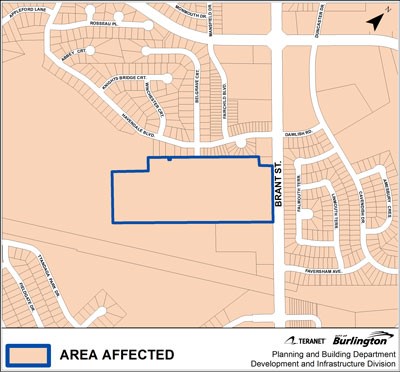Burlington taxpayers are on the hook for $17,088.97 in legal expenses, resulting from the current city council’s move to overturn a decision of the previous council, a manoeuvre that ultimately failed to produce the desired result.
The Local Planning Appeal Tribunal (LPAT) awarded the money to National Homes to compensate for the extra costs the developer incurred when the city reneged on the approval of its development application.
The Tribunal concluded that the city’s conduct was “clearly unreasonable.”
In November 2018, the outgoing city council approved National Homes’ development of 233 townhouses at 2100 Brant Street following the advice of staff and extensive public discussion. The only vote against was from then-Councillor Marianne Meed Ward, who had actively campaigned against the application. She promised voters that if elected to the top job, she would “seek to scale back” the development.
Less than a month later, Meed Ward, who was now mayor, convinced her new council to rescind the approval.

According to the LPAT decision released on Friday, National Homes argued that “the timing of the City’s conduct makes the decision both reprehensible and outrageous,” pointing out that the new council was sworn in on December 4 and made the decision to renege on the approval only two weeks later.
“For better or worse, our political systems allow for new governments to reverse decisions of previous governments, however it must also be noted that such decisions may come at a cost,” said the LPAT ruling.
Ultimately, the new city council did in fact settle with National Homes and approved the development at 2100 Brant Street with only minor adjustments.
At the time, Mayor Meed Ward offered some explanation.
“Our decision [to approve] also factored in some practical realities, including the inability to secure a planning witness that was of the opinion that the November 2018 proposal did not overall represent good planning, the likelihood that a hearing would not produce a different result, and the possibility that city taxpayers could be required to pay the entire costs of the applicant at a lengthy hearing. In addition, city staff who supported the November proposal would likely have been required to testify on behalf of the applicant, at city taxpayers’ expense.”
Disappointed neighbours made their feelings known. John Calvert, one of the leaders who supported Meed Ward for mayor because of her opposition to the development of 2100 Brant St., subsequently wrote to her that he was “profoundly disappointed” that the city settled with the developer without significant change to the planning application.




